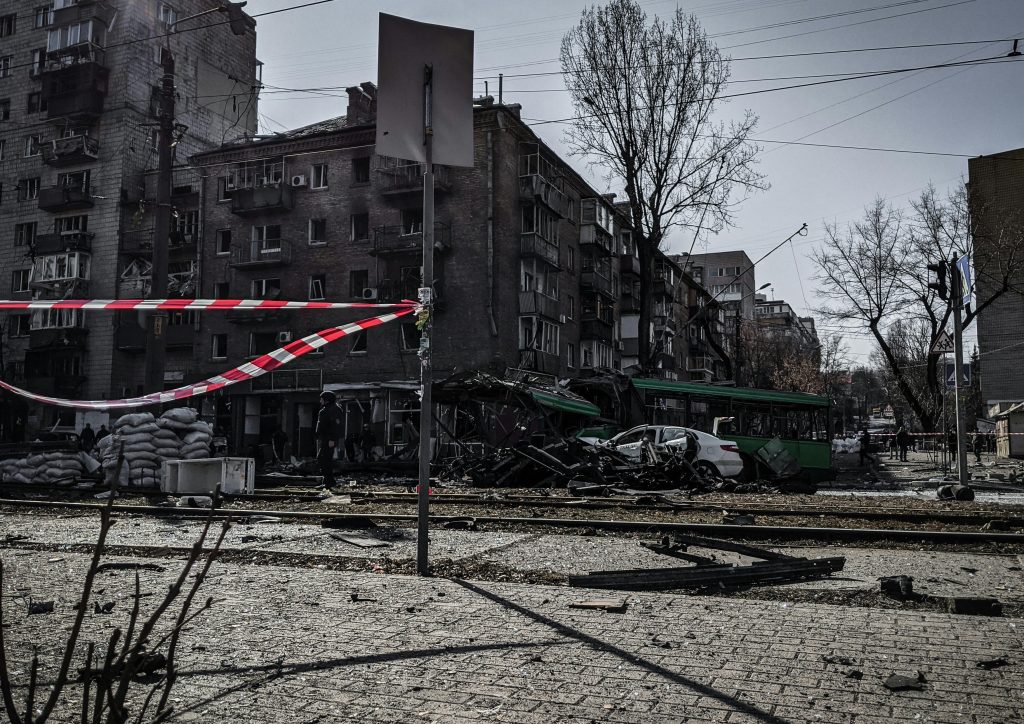Experience of Create Lithuania participants: planning the reconstruction of Ukraine was not an easy task

The work of the Create Lithuania team has evolved into a long-term international project. This is the way to summarize the development of a digital 3D spatial planning tool aimed at rebuilding ruined cities of Ukraine. According to former program participants Mariana Varkalienė (Maksymiv) and Rūta Marija Slavinskaitė, figuring out how to rebuild the infrastructure, which is continuously being destroyed, was indeed a challenging task.
Unconventional experience
In the wake of russia’s full-scale war against Ukraine, some of the Create Lithuania programme’s projects addressed the need for Lithuanian institutions to support the devastated country. Mariana and Rūta, at the Construction Sector Development Agency (hereafter, CSDA), analysed what the priorities for the long-term rebuilding of Ukraine could be and developed a proposal for a digital planning tool.
Their recommendations did not go to waste – the governments of Lithuania and Taiwan provided funding for the development of a 3D planning tool. The digital tool is supposed to be developed in the first half of 2024 and will be used first by the institutions of Borodyanka and Bucha.
While the development of the tool, inspired by the Create Lithuania project, is currently being successfully developed at the CSDA, Mariana and Rūta have faced number of challenges as they looked for the best way to contribute to rebuilding Ukraine in 2022. The war had a great influence on the usually typical processes of Create Lithuania projects. “Because of the war-related uncertainty, it was very difficult to navigate communication. You may not get a call or see a person,” says Rūta, referring to the constant bombardment in Ukrainian cities. In addition, information about the situation in Ukraine was constantly changing, making it difficult to assess the extent of the damage caused by russia.
Ukrainian-born Mariana, who came to Lithuania to study international law, said that this project was emotionally difficult for her, but she was pleased to be able to contribute to well-being of her homeland. However, the team’s daily routine in the context of the Create Lithuania programme was atypical. “Create Lithuania participants receive new experiences, which are usually positive ones. For me, it was very logical to bear this tension and stress, but these feelings transferred to Rūta as well”, says Mariana.

After the programme ended
After having implemented both of their Create Lithuania projects Mariana and Rūta chose to work for Lithuanian institutions. “I have a better sense of purpose when I’m working in the public sector,” says Rūta, who joined the CSDA. Mariana is currently working at the Central Project Management Agency (hereafter, CPMA). She is a project manager in Co-create Future of Ukraine programme there.
The former Create Lithuania participants are still involved in the development of the 3D planning tool – Rūta participated in meetings with the development team, while Mariana will administrate the project. In addition to this, she is a project manager of the Future School for Ukraine project. The aim of the initiative is to develop an adaptive technical design that can be easily customise by Ukrainian construction companies to build modern, safe, and suitable for the state of war educational institutions.
“Kids now are disconnected from education. Every tenth school is destroyed, every seventh is damaged to the extent that it is better to build a new one. One of the reasons why children are not going to school is that there are no shelters. Now it is a state requirement to have one. So, there are schools which cannot give educational services. They are not designed to work in wartime”, says Mariana.
Monika Merkytė, head of Create Lithuania programme, is pleased that the former participants continue to implement the changes needed for Lithuania and Ukraine. “The example of Rūta and Mariana shows that even in the short period of time it is possible to achieve meaningful impact. The Lithuanian public sector can certainly offer a space for impactful career”, she concludes.
More information:
Izabelė Švaraitė
Marketing and communications project manager
Mob. +370 61853358
izabele.svaraite@investlithuania.com
